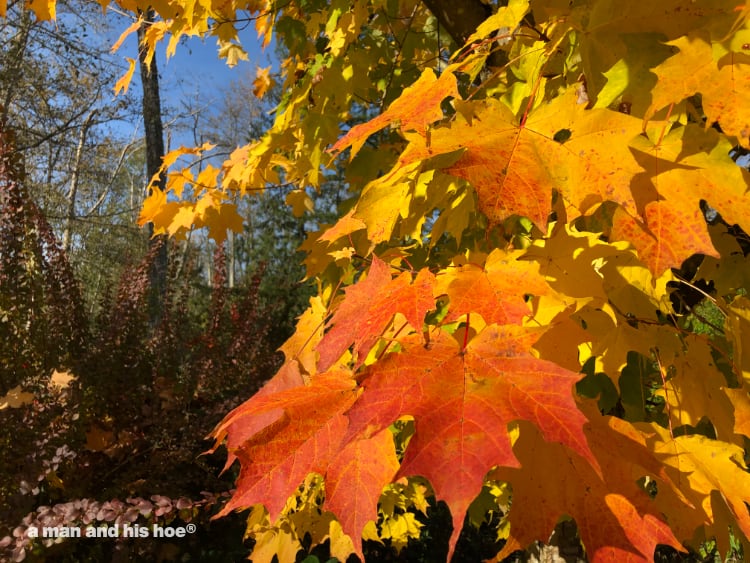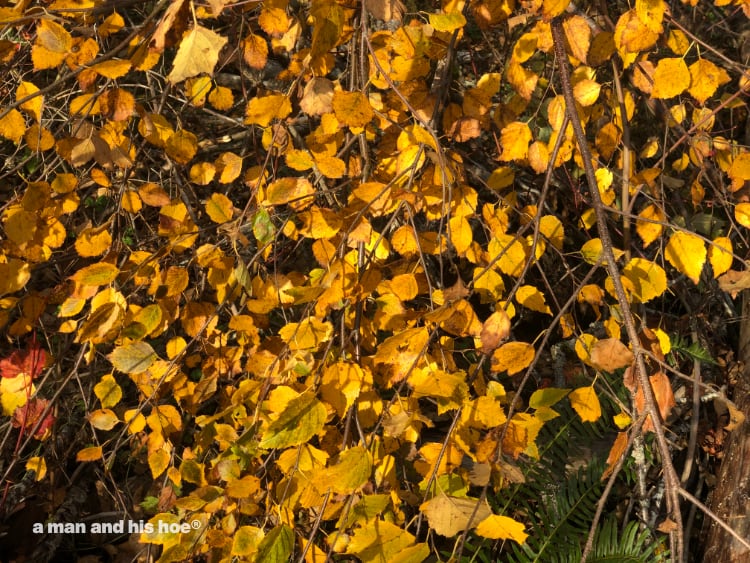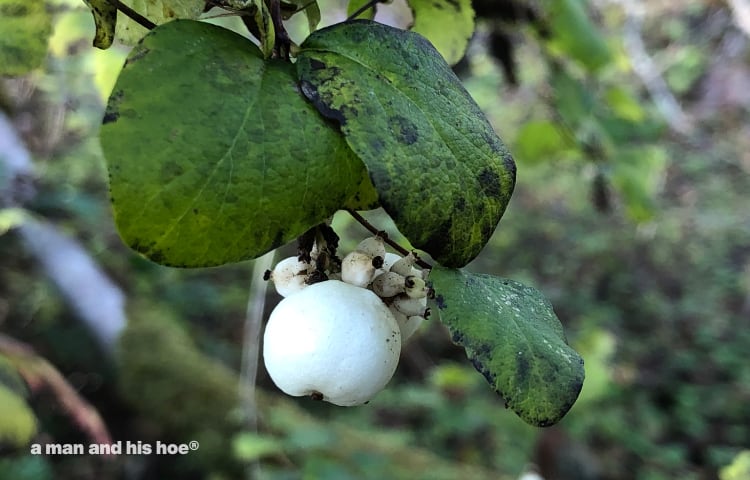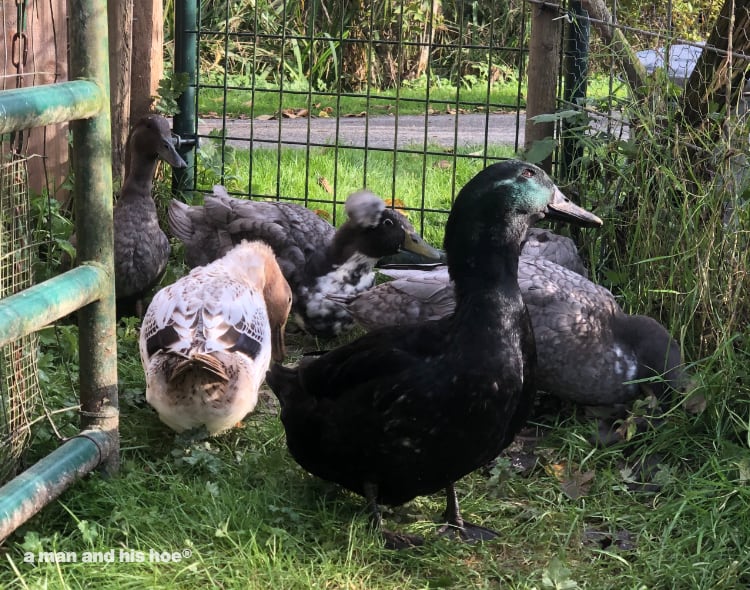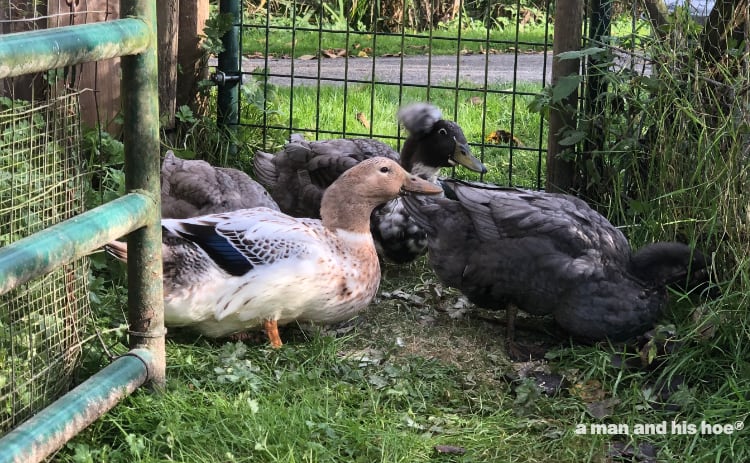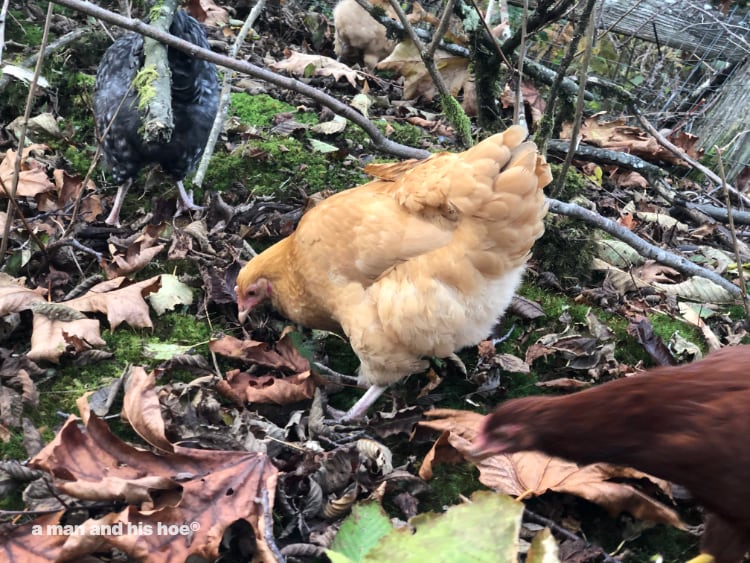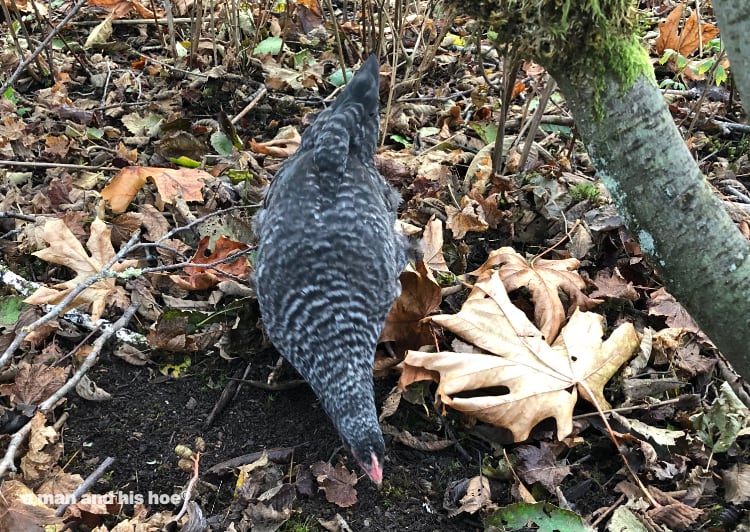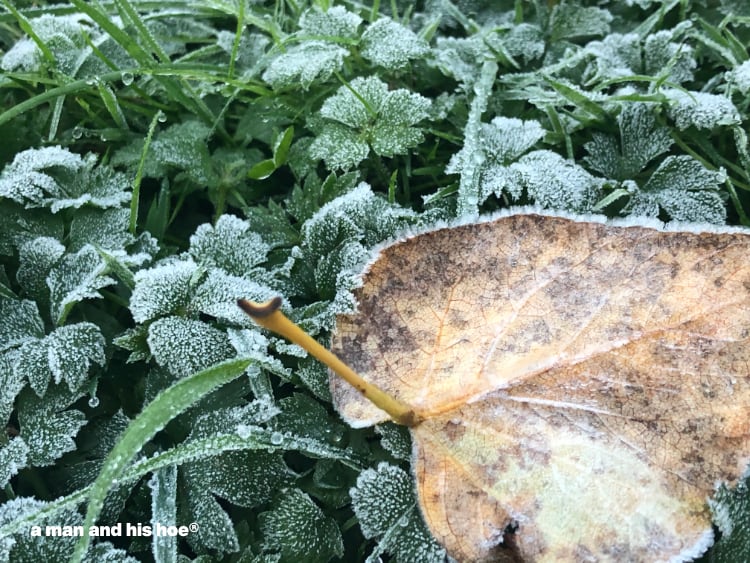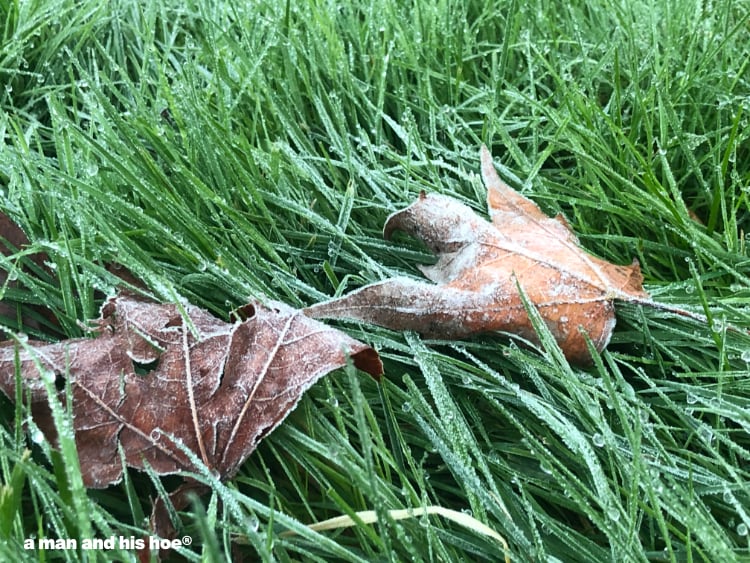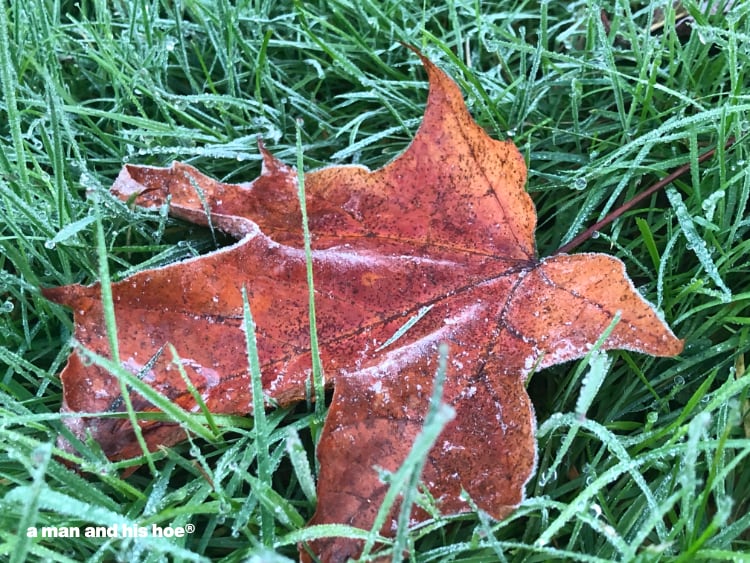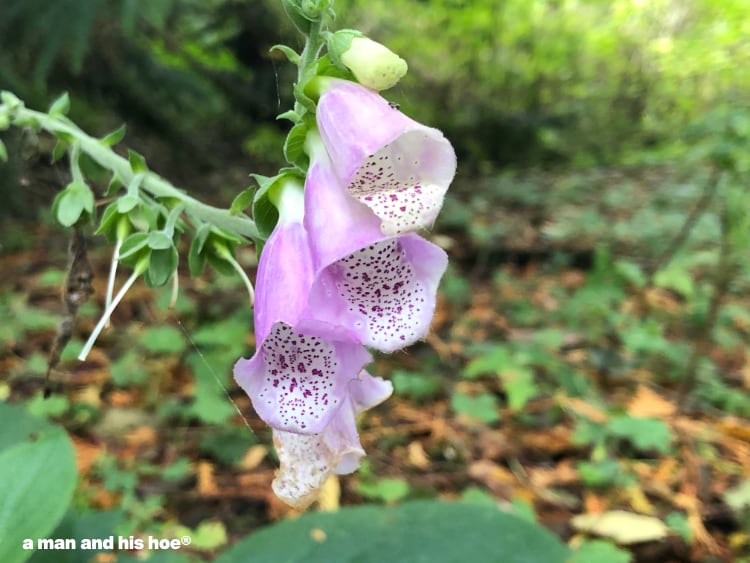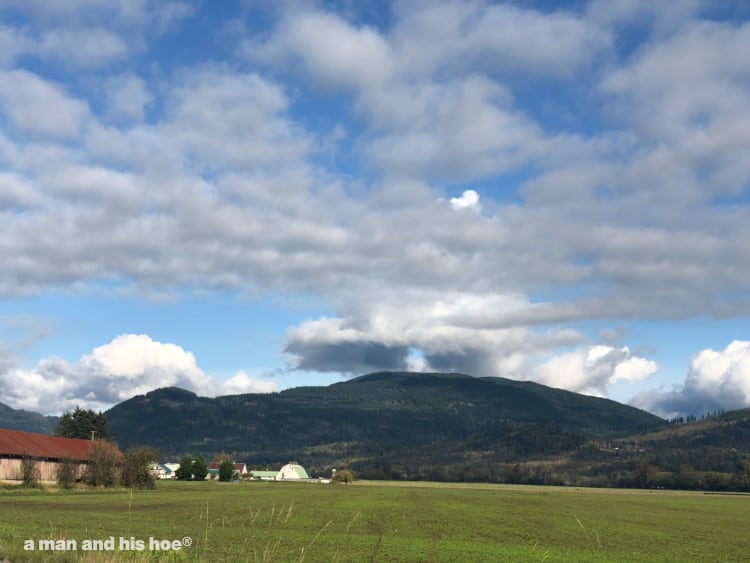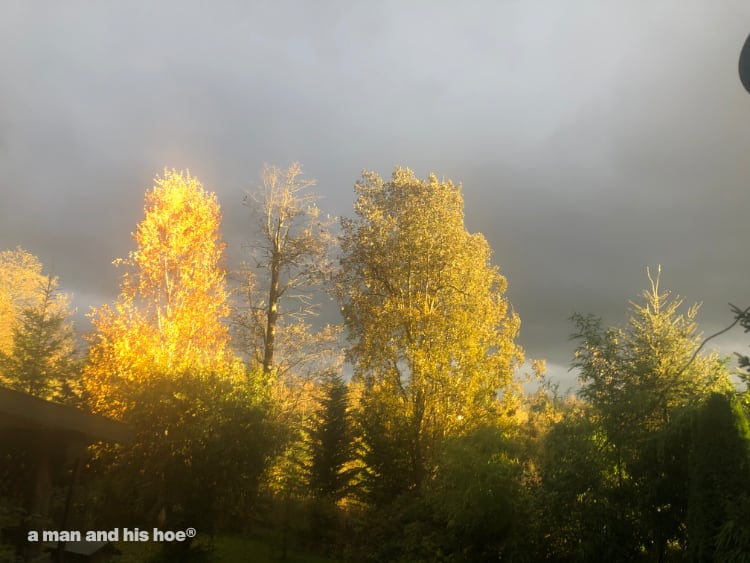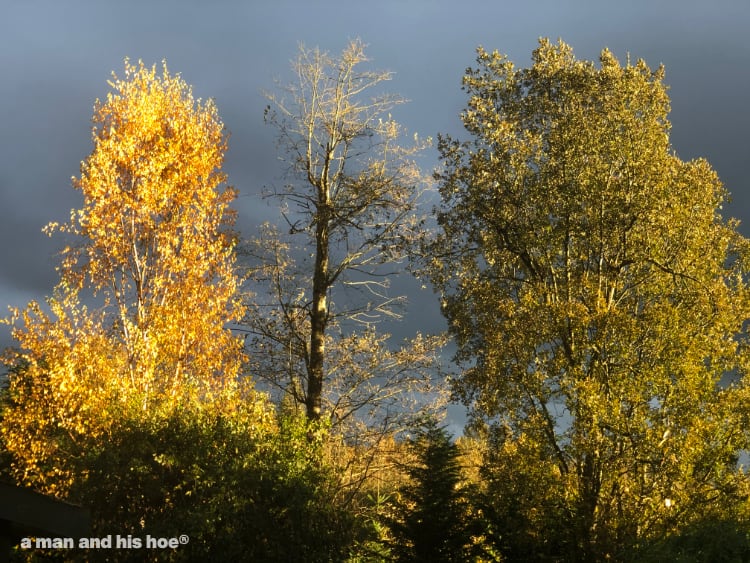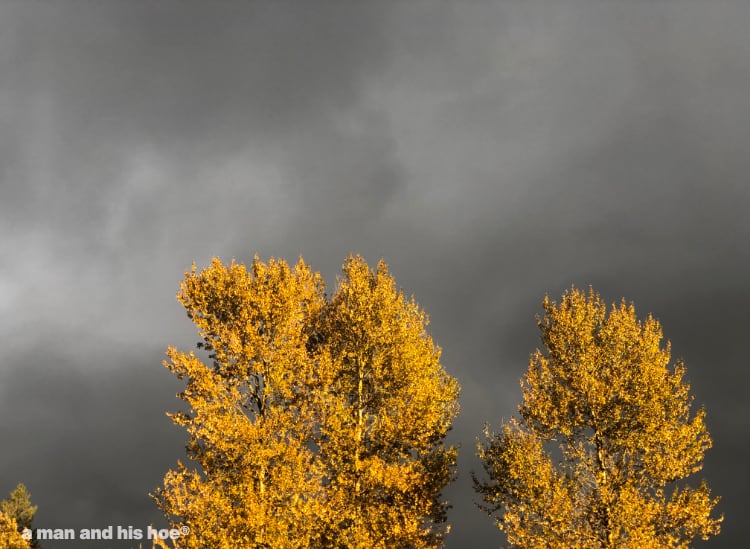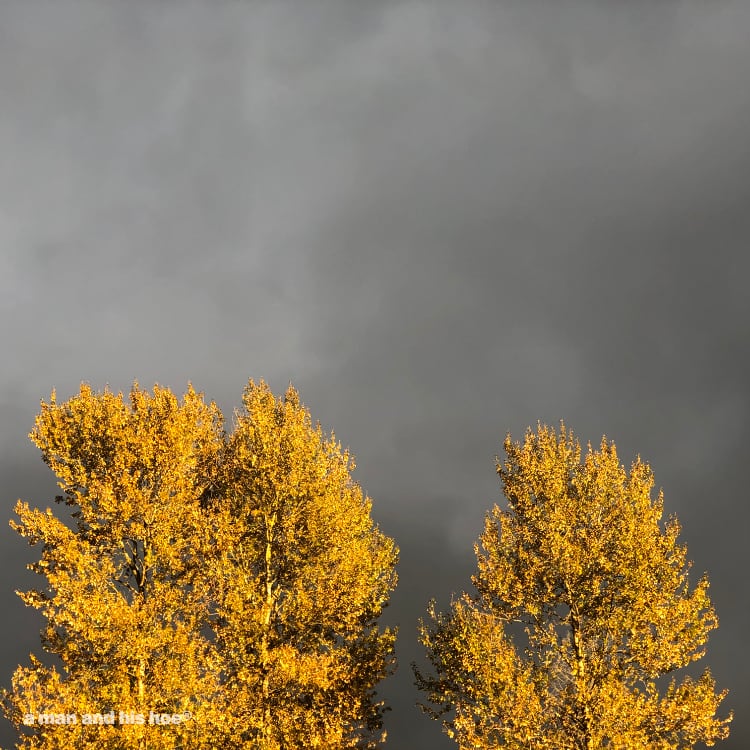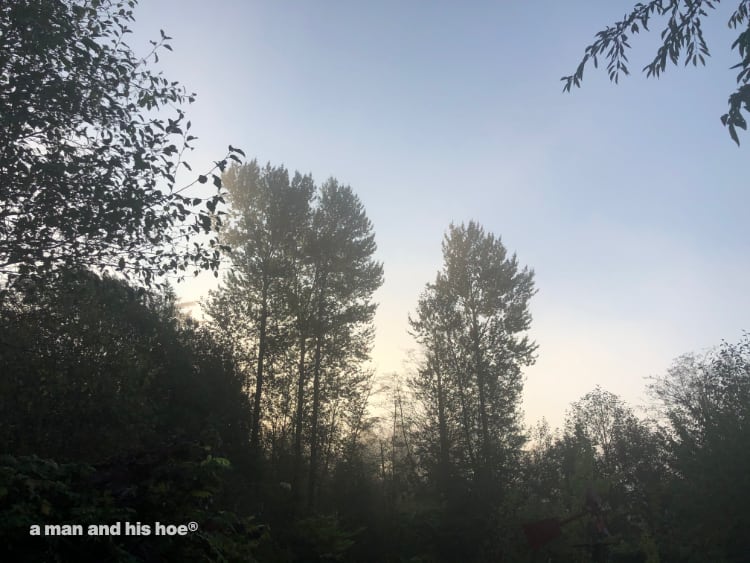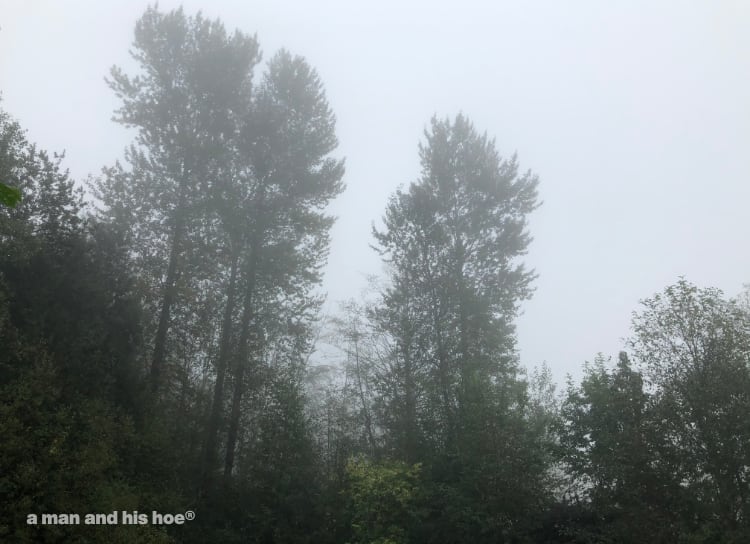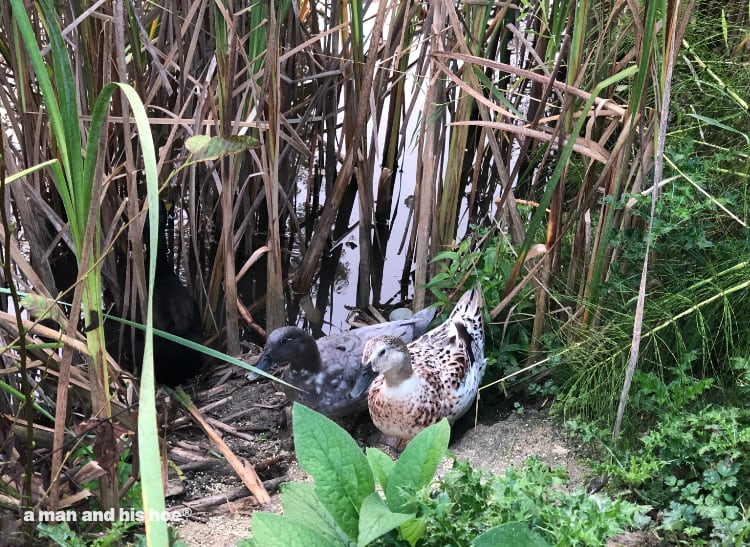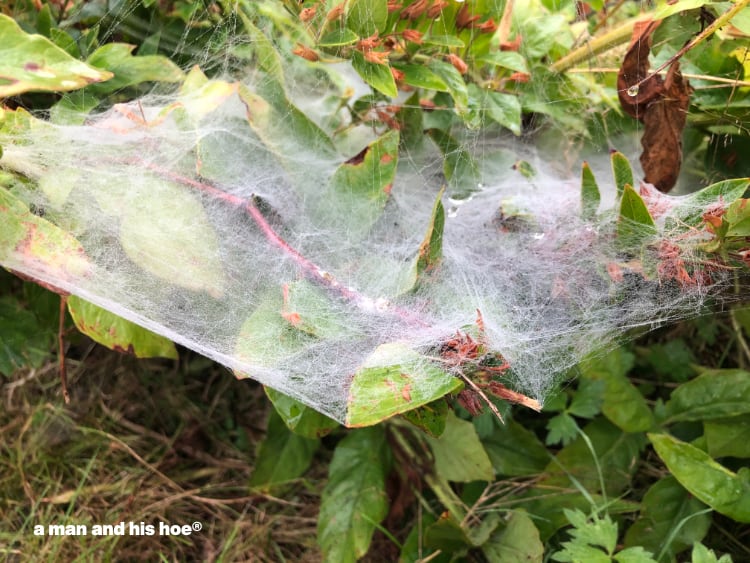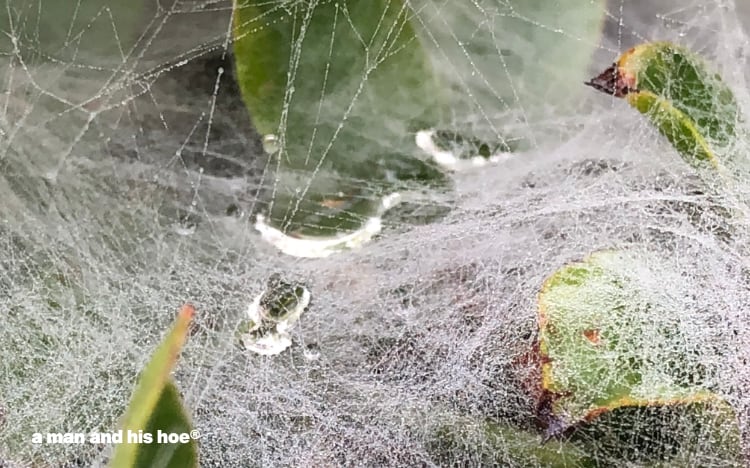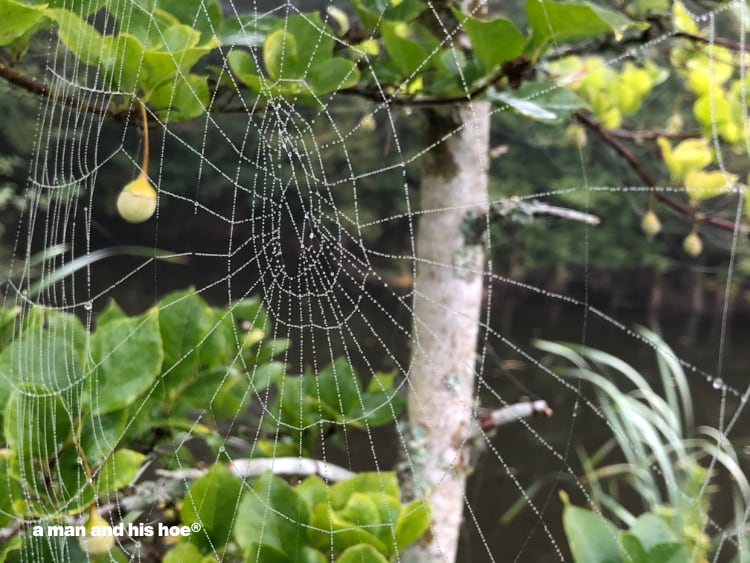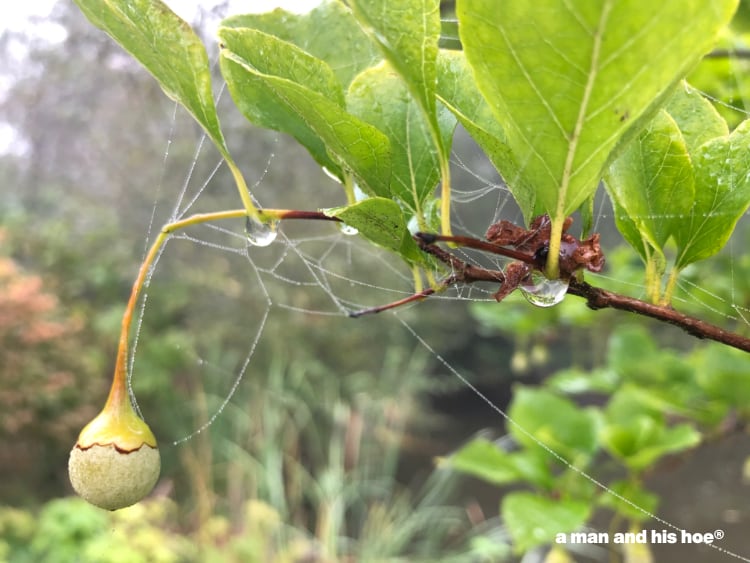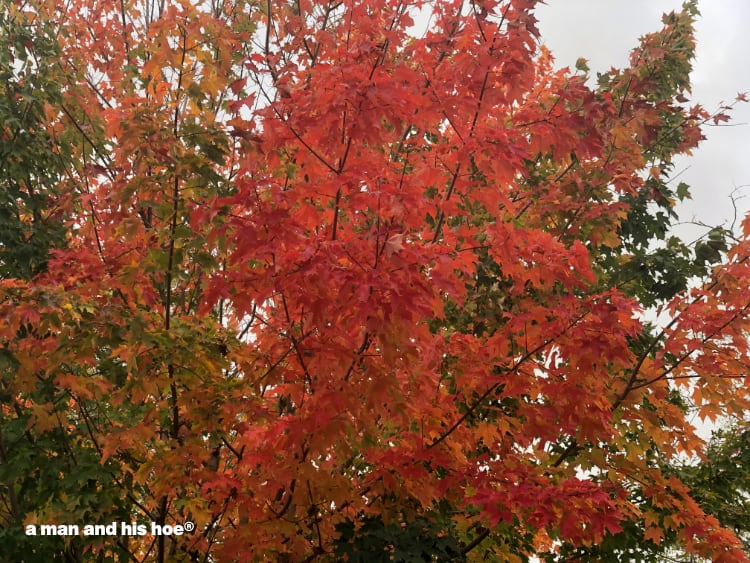
I didn’t realize today’s date was so special until I sat down to write this. 20 20 10 10. Strung together, 20201010, it almost looks like code. I wonder if someone in the year 1010, on October 10, wrote down 10101010, paused, looked at it, and had a fleeting thought about it being so binary.
Fall has deepened. The leaves are starting to pile up. Between the intermittent cloud breaks, the sky is a deep autumn blue.
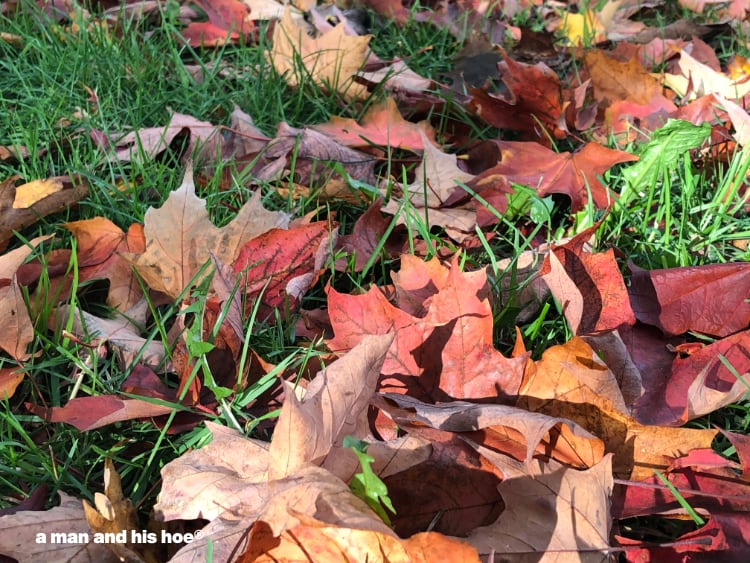
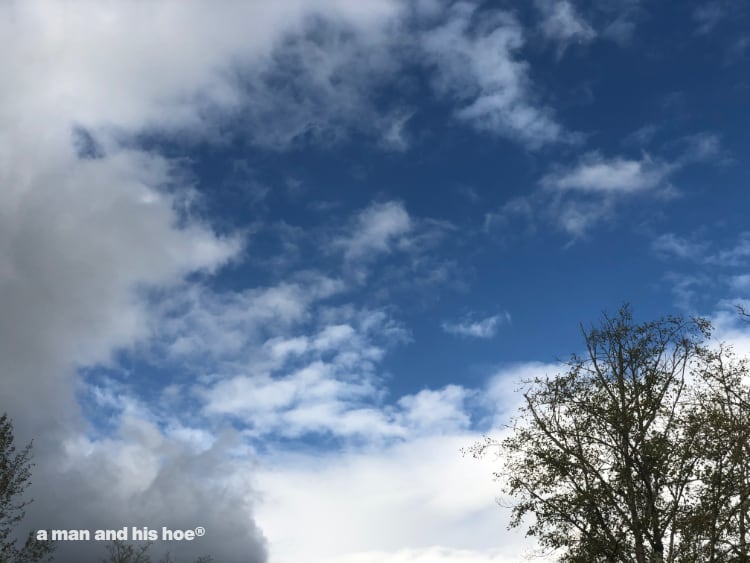
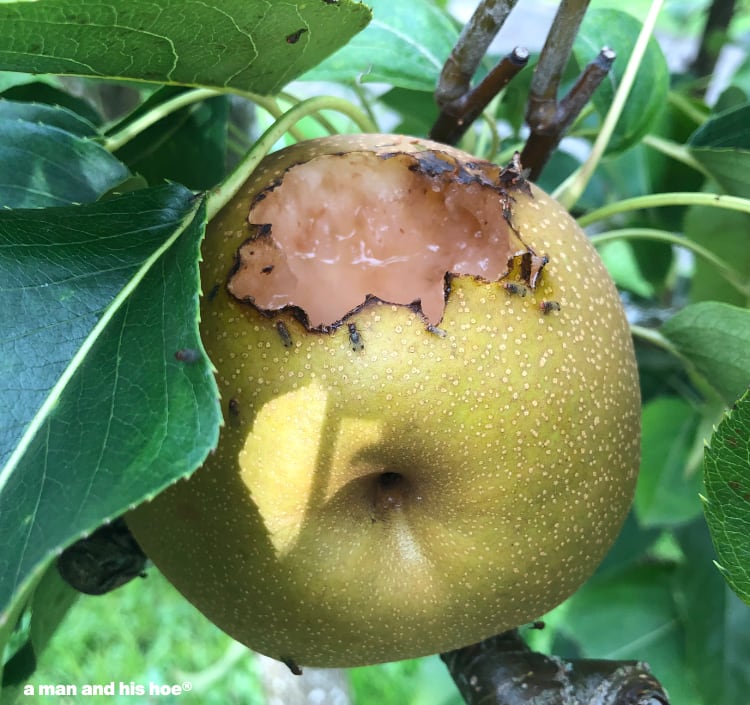
The birds have discovered the ripe Asian pears, 梨 (nashi). We’ve had so many I don’t mind. Is it the Stellar’s Jays, the Pileated Woodpeckers, or the Flickers that have found them? I’m guessing it is the Stellar’s Jays. And where did that name come from? From a German scientist, Georg Wilhelm Steller. Talk about a hard life. It took him ten years to reach Alaska. He didn’t even make it to the mainland. The boat he was on landed on Kayak Island off the coast of central Alaska. The captain wanted to stay just long enough to get water. Steller pleaded for more time to explore the island. The captain gave him 10 hours.
The crew was shipwrecked on their way back to Russia. They spent the winter on Bering Island where the captain died. They built a boat out of material salvaged from their wreck, and made their way back to Russia. But Georg Steller never made it back to his wife who stayed in St. Petersburg. On his way home he died of a fever at the age of only 37.
Talk about a sad, tragic tale. And I never would have known this if a Steller’s Jay hadn’t pecked at a ripe nashi by the garden making me wonder, where did that name come from?
What other names are there for these birds? The Chinook call them Iqesqes. In Lushootseed, one of the Salish languages of this area, they are called Kaykay.
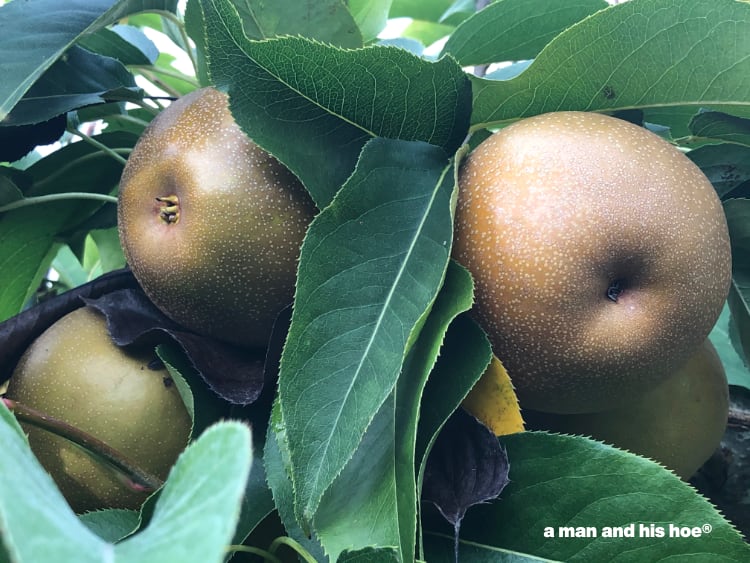
Come to think of it, each year a Pileated Woodpecker or two finishes off the apples. It’s been a few months since I’ve seen any.
There are still plenty of big, ripe nashi to eat. I culled 75% of them at the start of summer and it paid off. This October I have the biggest, sweetest nashi I’ve ever had. Next year I may cull even more. It does make me wonder if I cull all of them save for one, will that one nashi grow to be the size of a basketball?
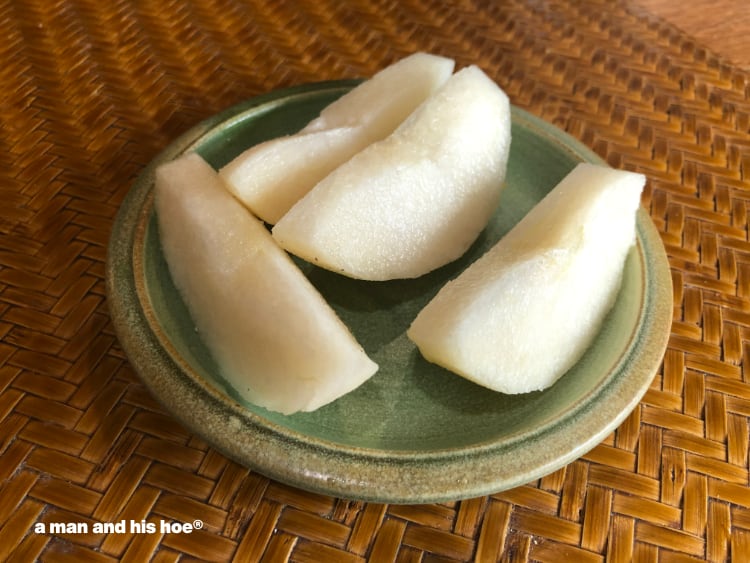
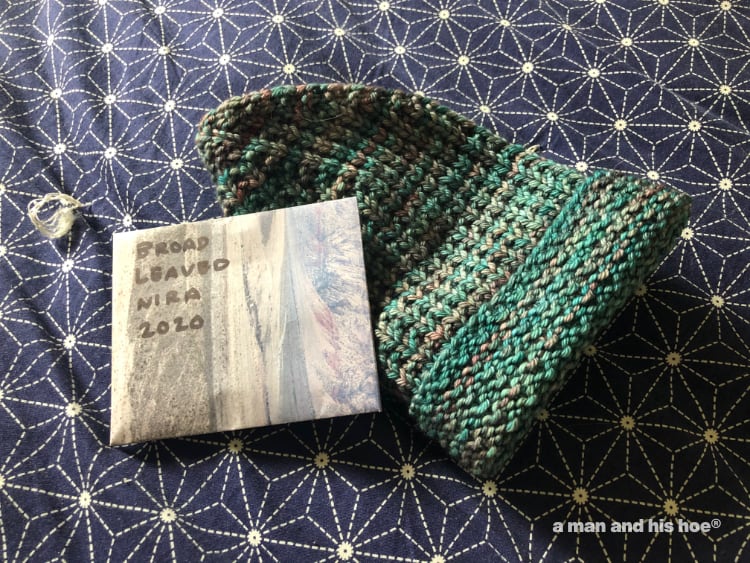
I received this wonderful hat woven from Merino wool by a wonderful person wanting to exchange it for some miso. It will be a wonderful reminder of 20201010. She threw in some nira ニラ seeds in too. I’ll remember 20201010 and Georg Steller when I harvest them.
